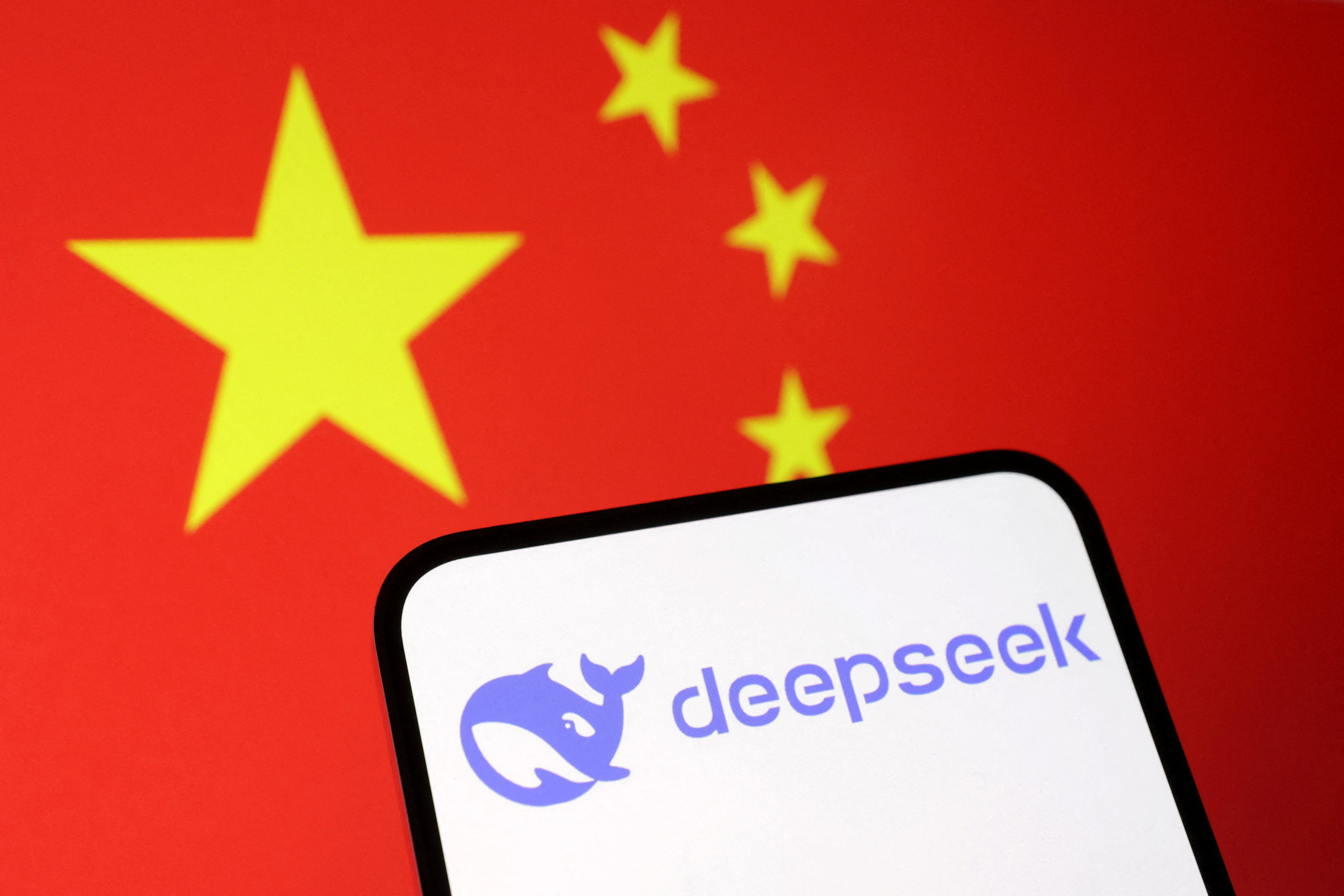
An Overview of Disruptive AI Technology – DeepSeek
The future, it seems is no longer entirely within our grasp - but perhaps this is the precisely the kind of leap forward we need to ensure our survival. — Vinod Johri
Several articles and news have been published in the newspapers and magazines on the latest disruptive AI technology – DeepSeek and our young generation, engineers, students and teachers must be encouraged to research and innovate on the latest technologies whether in artificial intelligence, cyber security, blockchain…..the opportunities are endless. There is a general impression that the Chinese have developed it at very lost cost and it is the domain of rich countries. Though it is not entirely true but Chinese have made huge investments in research and development with the Government, Corporate and fund managers roped in. The magnitude of investments is astonishing.
An article was published in the Pioneer “From Open AI to DeepSeek: The fight for supremacy” on 1 Feb 2025 by Nilantha Ilangamuwa. This article, first in series on DeepSeek takes an overview of the Disruptive AI Technology – DeepSeek and introduces the global scenario on artificial intelligence. The entire input of has been taken from the article of Nilantha Ilangamuwa as mentioned.
China has rapidly closed the AI gap and geopolitical tensions shifting from military might to algorithmic dominance. Though it is hasty to infer that the world is entering a digital Cold War but technology has already taken over the economy and defence. Let us imagine a computer’s hard drive containing a replica of your brain, connected to a high-speed Internet. The biological brain may become irrelevant when the machine not only possesses the mind but also gains control over everything is identified as ‘who you are’. This is what General Artificial Intelligence (AGI) truly represents - the vast, the unexplored frontier we are hurtling towards. The year begins with an AI race that was dominated by American startups, is now being swiftly overtaken by China at a significantly lower cost. We have crossed the Rubicon, heading towards the unknown destination, the consequences remain uncertain, and no one can predict what lies ahead.
The AI arms race, gaining unprecedented velocity, is propelling us into an era where the very foundations of intelligence, humanity, and civilization are being deconstructed at astonishing pace. Humanity, having long contended while with the challenge of technology reshaping its self-perception, is now facing an existential dilemma unlike any before. Artificial intelligence, however, threatens to do precise that. AGI poses a question so starkly profound that it demands our full intellectual engagement: What happens when the very attribute we have long considered uniquely human - the capacity to reason, to create, to understand - becomes replicable, scalable and infinitely more efficient, to the point where machines not only rival but surpass our cognitive limitations?
What becomes of the human essence when faced with the entities capable of thinking faster, learning more swiftly, and ultimately transcending us in a once inconceivable way? The new race in AI has surged ahead, with China unveiling results of its years of intensive experimentation. The release of Qwen 2.5, followed by DeepSeek - an inexpensive yet formidable competitor to models like GPT - 4 from Open AI - has appended the established order. This shift is not merely a matter of technological rivalry; it signifies a profound the alignment in the global power, where currency of influence is no longer military might or economic clout, but data control, computational resources and technological ingenuity.
The new ‘cold war’, truly it may be called so, is not one of armaments but of algorithms that information - the intellectual race whose stakes extend far beyond economic primacy to the very survival of the human civilization itself. As AI advances, it forces us to confront deeply uncomfortable truths about our nature. For millennia, humanity has positioned itself at apex of the intelligence on Earth, a secret of being a ‘super species’. Yet what occurs when our very creations - machines begin to outshine us in the same domains? When we no longer retain exclusive domain over intelligence, how does this fundamentally alter our sense of identity?
Are we like the alchemists of antiquity, on the verge of realising what we no longer control our fate, but have given birth to entities that might one day supplant us? The very nature of the intelligence itself is now irreversibly in question. Cognitive architectures, once the exclusive province of human brain, are now being mirrored and surpassed by machines. AI, in its most advanced forms, becomes a reflection of our intellectual framework - yet that operates faster, more efficiently, and with an ability to learn that far exceeds human potential. This is not merely an augmentation of human capabilities; it heralds the dawn of new epoch, where human and machine cognition converge, indistinguishable and perhaps inseparable. As we approach this unnerving future, we must ask ourselves whether we are philosophically, politically, and socially prepared to co-exist with entities that may one day rival or eclipse us.
Will we, as a species, embrace co-evolution, finding a new equilibrium in our relationship with the machines, or will we cling to fast myths of human exceptionalism attempting to subjugate or destroy the very creations we have birthed?
The decisions we make now will echo far beyond our survival, influencing the very nature of intelligence and future trajectory of all life on the Earth. The geopolitical ramifications of this technological revolution are as profound as its existential implications. Powerful nations with vast resources for research, development, and energy will continue to dominate the future, while smaller countries may face unprecedented crises including crises concerning their own identity.
As AI becomes embedded in the infrastructure of global politics, we are entering the era of digital empires - systems of control as potent as any traditional nation-state, commanding not only information but the very nature of human interaction. In this new digital cold war, the battle is not merely for technological supremacy, but for control over global political system itself. Is the rise of AI, an essential leap forward in humanity’s evolution, or does it signals the twilight of human relevance?
AI is necessary tool; a portal that helps protects us from danger of total annihilation. Others, however, may see it as harbinger of obsolescence, a point of no return where our creations ascend to power and render as us irrelevant. However, there is a subtler, more philosophical interpretation of this transformation shift. Perhaps the advent of AGI is not our fall from grace, but the birth of a new chapter in the human evolution - one where we transcend the biological constraints that have long defined us. Like our ancestors who tamed fire and invented the wheel, we may soon wield AI as a tool that propels us to a new height. The fusion of human and artificial intelligence could lead to a post-human condition - that not only of extinction, but of surpassing the boundaries of our biological form and entering a phase of hybridised existence. This, of course, depends on our ability to confront the ethical and political structures that accompany the rise of AGI.
The true challenge is not whether we will create machines that surpass us is intelligence, but whether we have the wisdom to ensure that they remain our allies rather than adversaries. We must learn to coexist with these new intelligences, integrating them into our societies in ways that enhance, rather than diminish, our humanity. This is the existential challenge of our time - one that will determine whether the era of artificial intelligence will culminate in annihilation or transcendence.
Ultimately, the measure of our humanity will not lie in our ability to create machines that rival us in intelligence, but in our capacity to retain those qualities that define us: empathy, creativity, and the willingness to evolve in response to monumental change. If we can meet with this challenge, the future - however certain - will hold us at least the promise of our fragile immunity. If not, we may find ourselves consigned to the dustbin of history, supplanted by the very entities we have created. Are we prepared to face the unknown abyss, or will we cover in fear, clinging to the confronting illusions of the past? The future, it seems is no longer entirely within our grasp - but perhaps this is the precisely the kind of leap forward we need to ensure our survival.
In the next article on DeepSeek, we will discuss in more depth and our country’s efforts in foraying research, investments and Government’s infrastructural advancements towards developing our own AI models.


